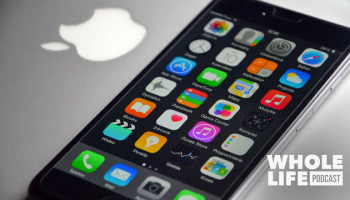Technology is pervasive in our everyday lives, yet so much of it is incredibly useful — we can get instant directions to our destinations, track our fitness progress, and organize our hectic schedules. But my recent conversation with Nir Eyal, author of Hooked: How to Build Habit-Forming Products, made me realize the dangerous side of technology and the hold it has on us through a mechanism Nir calls the “hook cycle.”
 Nir has taught at and is a contributor writer to bothike everything else it all comes down to money. Companies want to create habits in consumers — repeat business is their goal. So the applications you think you’re using for social connection are really just emotion-driven responses to a need. Nir and I talk about the differences between external triggers, like needing to check the weather on a weather app, to internal triggers, like feeling lonely and logging in to a dating app for validation to fill the void. Pretty scary to think about products as mind control instead of harmless time wasters.
Nir has taught at and is a contributor writer to bothike everything else it all comes down to money. Companies want to create habits in consumers — repeat business is their goal. So the applications you think you’re using for social connection are really just emotion-driven responses to a need. Nir and I talk about the differences between external triggers, like needing to check the weather on a weather app, to internal triggers, like feeling lonely and logging in to a dating app for validation to fill the void. Pretty scary to think about products as mind control instead of harmless time wasters.
It’s critical to understand why we use all these apps, and why we feel like we need them. It seems like humans are at a point where we reject a state of boredom, or at least feel guilty about it. To overcome this feeling, we turn to technology to feel some sense of being productive, even though that’s far from what we’re actually being. On the flip side, creativity flourishes in the state of boredom, so why not embrace the concept of not doing anything, and see what happens?
There is hope to navigating our increasingly “hooked” world, and Nir has some amazing insights. By diagnosing the hook cycle, he’s built a method for breaking the cycle through roadblocks that can disrupt these compulsive patterns of behavior. We have to gain control of our behaviors and reclaim mastery over our lives — after all, it’s impossible to create when in a state of constant consumption.
Links Mentioned:
Un-Hooked — Nir’s talk on ways to break the hook cycle and increase focus.
Why People Check Their Tech at the Wrong Times — Nir’s advice on politely getting people off their devices.
Would You Rather Sit and Think or Get Shocked? — Timothy Wilson’s shocking experiment.
Kahoot! — “Make Learning Awesome!”
7 Cups — Internet-based therapy sessions created by psychologist Glen Moriarty.








